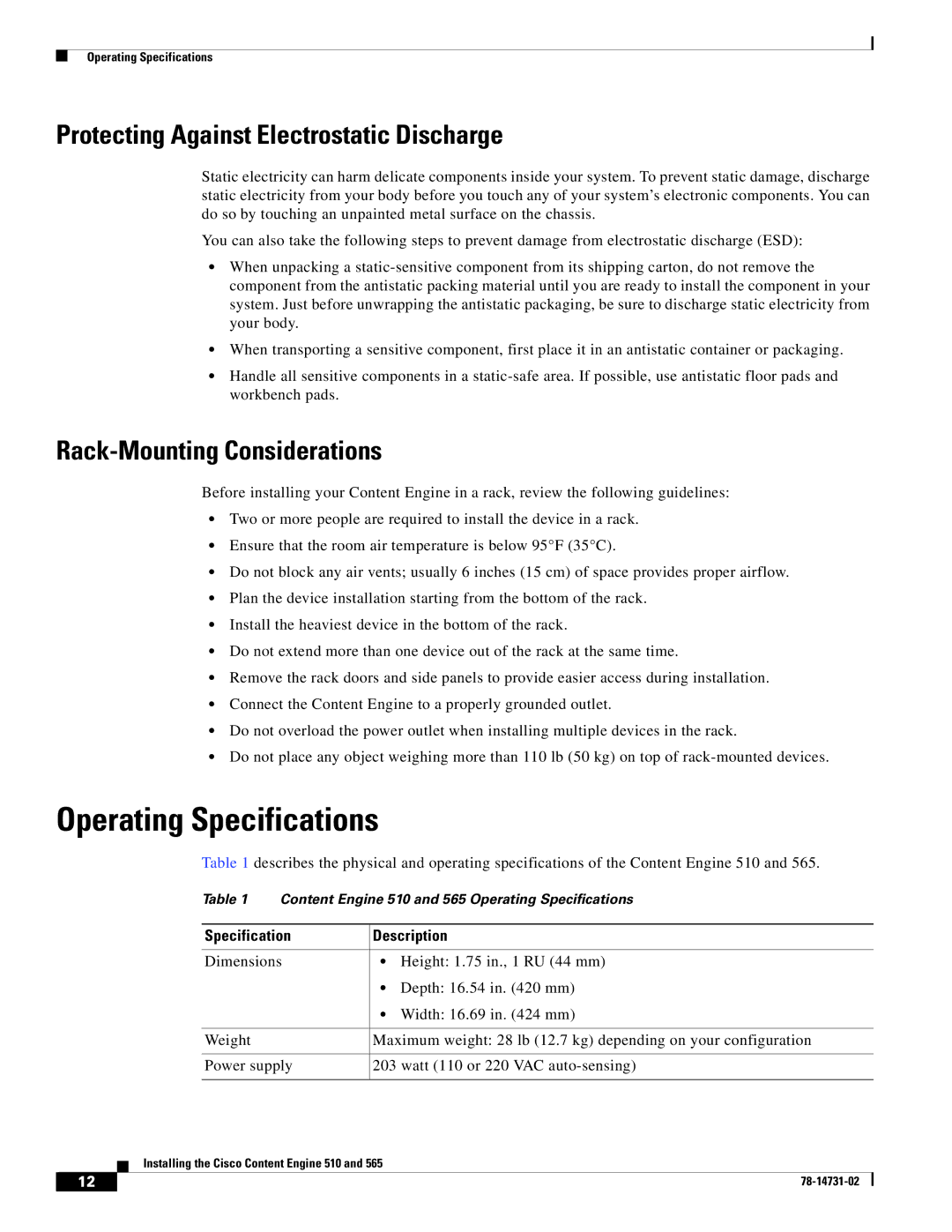
Operating Specifications
Protecting Against Electrostatic Discharge
Static electricity can harm delicate components inside your system. To prevent static damage, discharge static electricity from your body before you touch any of your system’s electronic components. You can do so by touching an unpainted metal surface on the chassis.
You can also take the following steps to prevent damage from electrostatic discharge (ESD):
•When unpacking a
•When transporting a sensitive component, first place it in an antistatic container or packaging.
•Handle all sensitive components in a
Rack-Mounting Considerations
Before installing your Content Engine in a rack, review the following guidelines:
•Two or more people are required to install the device in a rack.
•Ensure that the room air temperature is below 95°F (35°C).
•Do not block any air vents; usually 6 inches (15 cm) of space provides proper airflow.
•Plan the device installation starting from the bottom of the rack.
•Install the heaviest device in the bottom of the rack.
•Do not extend more than one device out of the rack at the same time.
•Remove the rack doors and side panels to provide easier access during installation.
•Connect the Content Engine to a properly grounded outlet.
•Do not overload the power outlet when installing multiple devices in the rack.
•Do not place any object weighing more than 110 lb (50 kg) on top of
Operating Specifications
Table 1 describes the physical and operating specifications of the Content Engine 510 and 565.
Table 1 Content Engine 510 and 565 Operating Specifications
Specification | Description |
|
|
Dimensions | • Height: 1.75 in., 1 RU (44 mm) |
| • Depth: 16.54 in. (420 mm) |
| • Width: 16.69 in. (424 mm) |
|
|
Weight | Maximum weight: 28 lb (12.7 kg) depending on your configuration |
|
|
Power supply | 203 watt (110 or 220 VAC |
|
|
Installing the Cisco Content Engine 510 and 565
12 |
| |
|
